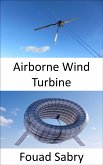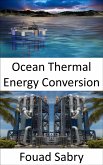What Is Vortex Engine
The idea of a vortex engine, also known as an atmospheric vortex engine (AVE), was separately conceived by both Norman Louat and Louis M. Michaud. Its primary objective is to replace the use of enormous physical chimneys with a smaller, less costly structure that generates a vortex of air. The AVE is responsible for inducing ground-level vorticity, which ultimately leads to the formation of a vortex that is analogous to a naturally occurring landspout or waterspout.
How You Will Benefit
(I) Insights, and validations about the following topics:
Chapter 1: Vortex engine
Chapter 2: Engine
Chapter 3: Jet engine
Chapter 4: Turbine
Chapter 5: Power station
Chapter 6: Solar updraft tower
Chapter 7: Mesocyclone
Chapter 8: Brayton cycle
Chapter 9: Solar thermal energy
Chapter 10: Solar thermal collector
Chapter 11: Energy tower (downdraft)
Chapter 12: Index of meteorology articles
Chapter 13: List of energy resources
Chapter 14: Airborne wind energy
Chapter 15: Engine efficiency
Chapter 16: Unconventional wind turbines
Chapter 17: Energy tower (disambiguation)
Chapter 18: Atmospheric convection
Chapter 19: Fan (machine)
Chapter 20: Secondary flow
Chapter 21: Glossary of meteorology
(II) Answering the public top questions about vortex engine.
(III) Real world examples for the usage of vortex engine in many fields.
(IV) 17 appendices to explain, briefly, 266 emerging technologies in each industry to have 360-degree full understanding of vortex engine' technologies.
Who This Book Is For
Professionals, undergraduate and graduate students, enthusiasts, hobbyists, and those who want to go beyond basic knowledge or information for any kind of vortex engine.
The idea of a vortex engine, also known as an atmospheric vortex engine (AVE), was separately conceived by both Norman Louat and Louis M. Michaud. Its primary objective is to replace the use of enormous physical chimneys with a smaller, less costly structure that generates a vortex of air. The AVE is responsible for inducing ground-level vorticity, which ultimately leads to the formation of a vortex that is analogous to a naturally occurring landspout or waterspout.
How You Will Benefit
(I) Insights, and validations about the following topics:
Chapter 1: Vortex engine
Chapter 2: Engine
Chapter 3: Jet engine
Chapter 4: Turbine
Chapter 5: Power station
Chapter 6: Solar updraft tower
Chapter 7: Mesocyclone
Chapter 8: Brayton cycle
Chapter 9: Solar thermal energy
Chapter 10: Solar thermal collector
Chapter 11: Energy tower (downdraft)
Chapter 12: Index of meteorology articles
Chapter 13: List of energy resources
Chapter 14: Airborne wind energy
Chapter 15: Engine efficiency
Chapter 16: Unconventional wind turbines
Chapter 17: Energy tower (disambiguation)
Chapter 18: Atmospheric convection
Chapter 19: Fan (machine)
Chapter 20: Secondary flow
Chapter 21: Glossary of meteorology
(II) Answering the public top questions about vortex engine.
(III) Real world examples for the usage of vortex engine in many fields.
(IV) 17 appendices to explain, briefly, 266 emerging technologies in each industry to have 360-degree full understanding of vortex engine' technologies.
Who This Book Is For
Professionals, undergraduate and graduate students, enthusiasts, hobbyists, and those who want to go beyond basic knowledge or information for any kind of vortex engine.
Dieser Download kann aus rechtlichen Gründen nur mit Rechnungsadresse in A, B, BG, CY, CZ, D, DK, EW, E, FIN, F, GR, H, IRL, I, LT, L, LR, M, NL, PL, P, R, S, SLO, SK ausgeliefert werden.









